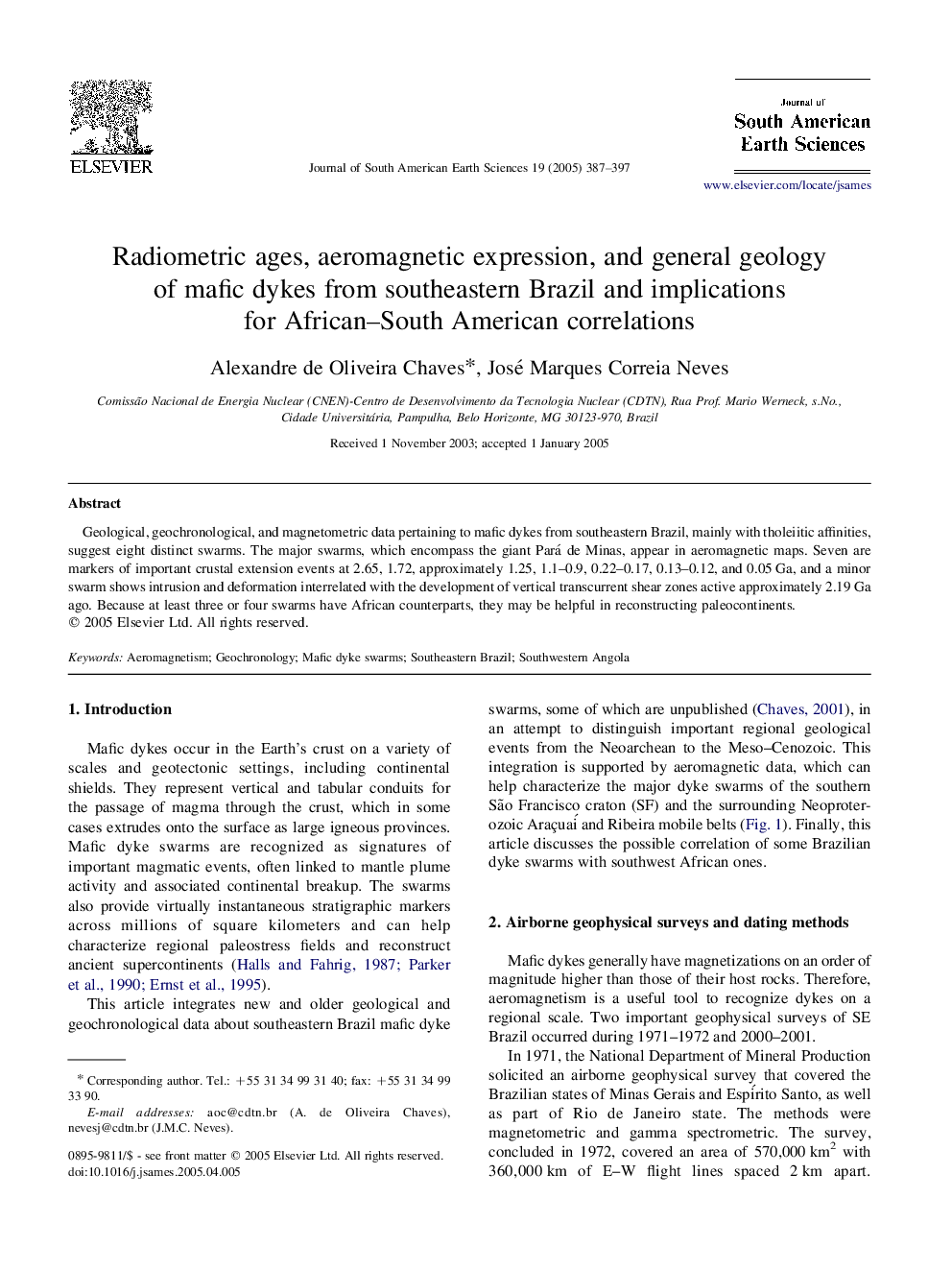| Article ID | Journal | Published Year | Pages | File Type |
|---|---|---|---|---|
| 9524414 | Journal of South American Earth Sciences | 2005 | 11 Pages |
Abstract
Geological, geochronological, and magnetometric data pertaining to mafic dykes from southeastern Brazil, mainly with tholeiitic affinities, suggest eight distinct swarms. The major swarms, which encompass the giant Pará de Minas, appear in aeromagnetic maps. Seven are markers of important crustal extension events at 2.65, 1.72, approximately 1.25, 1.1-0.9, 0.22-0.17, 0.13-0.12, and 0.05Â Ga, and a minor swarm shows intrusion and deformation interrelated with the development of vertical transcurrent shear zones active approximately 2.19Â Ga ago. Because at least three or four swarms have African counterparts, they may be helpful in reconstructing paleocontinents.
Related Topics
Physical Sciences and Engineering
Earth and Planetary Sciences
Earth and Planetary Sciences (General)
Authors
Alexandre de Oliveira Chaves, José Marques Correia Neves,
